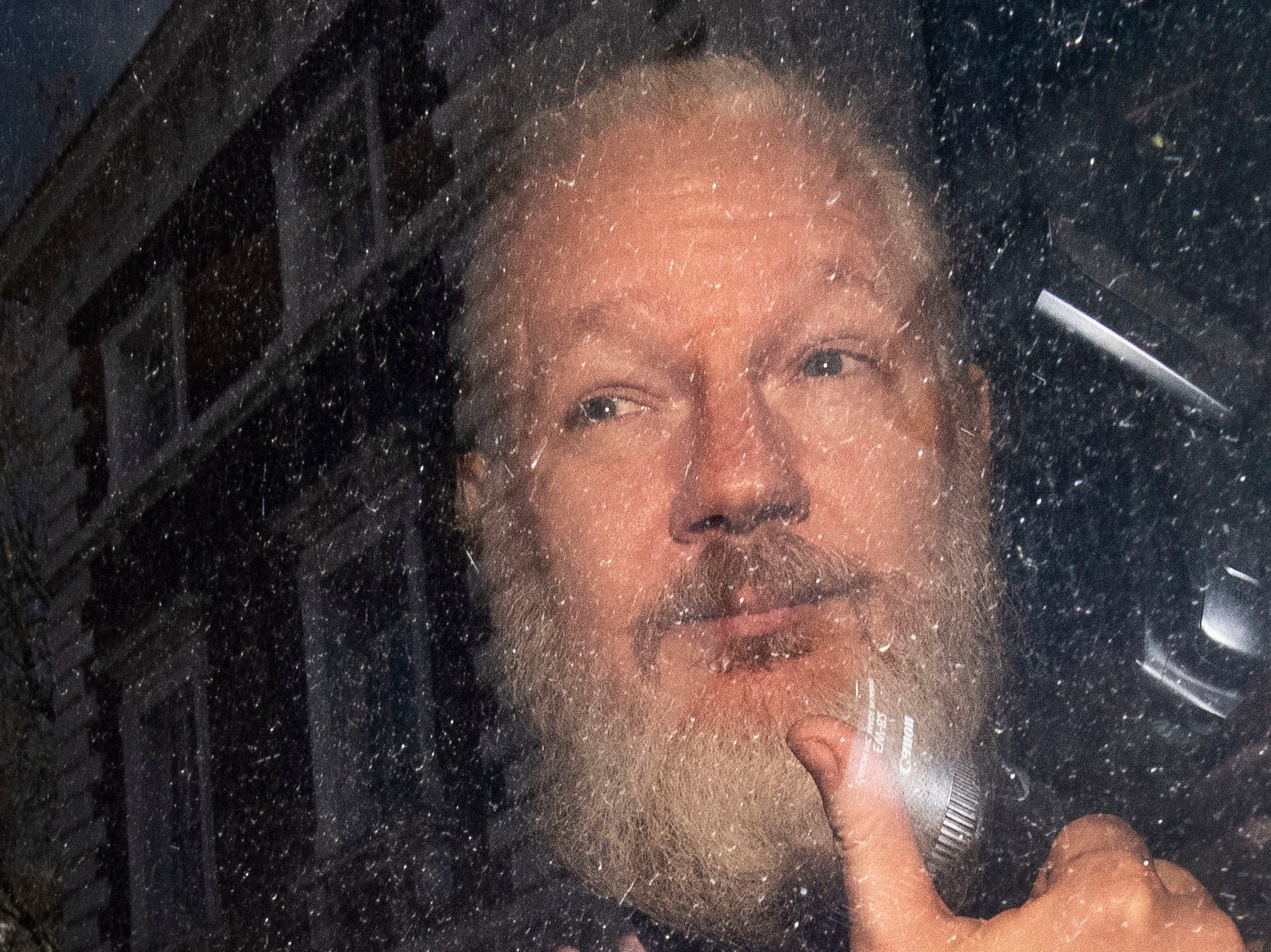
Julian Assange has been ordered to face a full extradition hearing next year, as his legal team branded charges in the US “an outrageous and full-frontal assault” on journalistic rights.
The Wikileaks founder is fighting against being sent to the States to face 18 charges that include allegations of conspiring to hack into a classified Pentagon computer.
The US extradition case was formally opened at Westminster Magistrates’ Court today, a day after an extradition request was signed off by Home Secretary Sajid Javid.
Assange, with a scraggly white beard, told the court that “175 years of my life is effectively at stake” as he sought to defend his organisation.
Mark Summers QC, representing Assange, said there are a “multiplicity of profound issues” with the extradition case. “We say it represents an outrageous and full-frontal assault on journalistic rights,” he said.
Chief Magistrate Emma Arbuthnot ordered for a full extradition hearing expected to last five days to begin on February 25.
It also emerged that Assange plans to appeal against his sentence for a bail breach.
Assange, wearing black-rimmed glasses, appeared by video-link from Belmarsh Prison, where he is serving a 50-week prison sentence for the violation.
Addressing the judge as Lady Arbuthnot, he defended his website against hacking claims, saying: “Wikileaks is nothing but a publisher.”
Ben Brandon, representing the US, formally opened the case, saying it relates to “one of the largest compromises of confidential information in the history of the United States”.
Evidence will show that Assange “first encouraged” former US army intelligence analyst Chelsea Manning to illegally obtain documents, Brandon alleged.
Then Assange agreed with her to “crack” a password hash on a Pentagon computer, the lawyer continued.
“By taking steps to crack the password hash, it’s said that Mr Assange was also attempting to illegally obtain and receive classified information.”
The documents relate to the Iraq and Afghanistan wars and, the lawyer alleged, information on secret intelligence sources.
“By publishing that unredacted material on the internet, Mr Assange created a grave and imminent risk that human intelligence sources, including journalists, human rights defenders and political activists, would suffer serious physical harm or arbitrary detention,” Brandon said.
Assange, 47, was jailed in April after police dragged him out of the Ecuadorian embassy in London, where he had spent seven years holed up after claiming political asylum.
Meanwhile, an investigation has also been reopened into an allegation of rape in Sweden, which Assange has always denied.
He still commands the support of some loyal fans, with a group of about a dozen showing their solidarity outside the court today.
Jennifer Robinson, a lawyer representing Assange, gave a statement outside court to warn the US indictment “will place a chilling impact” on journalism and publishers “all over the world”.
The material Wikileaks published included “evidence of war crimes, human rights abuse and corruption the world over”, she stressed.
The case attracts attention from an international audience, with journalists representing outlets from across the globe queuing to get into the hearing.
Picture: Victoria Jones/PA Wire
Email pged@pressgazette.co.uk to point out mistakes, provide story tips or send in a letter for publication on our "Letters Page" blog
